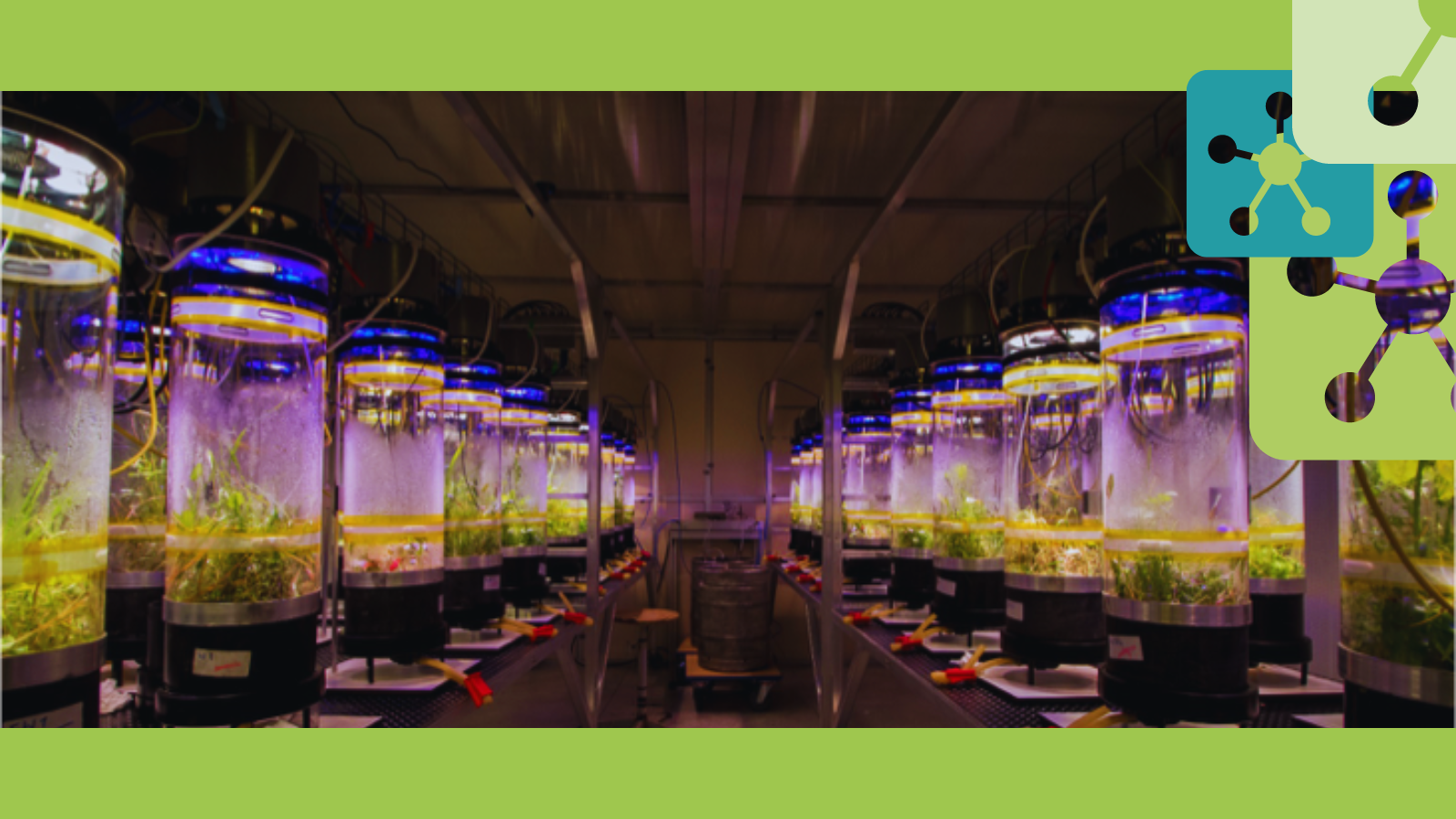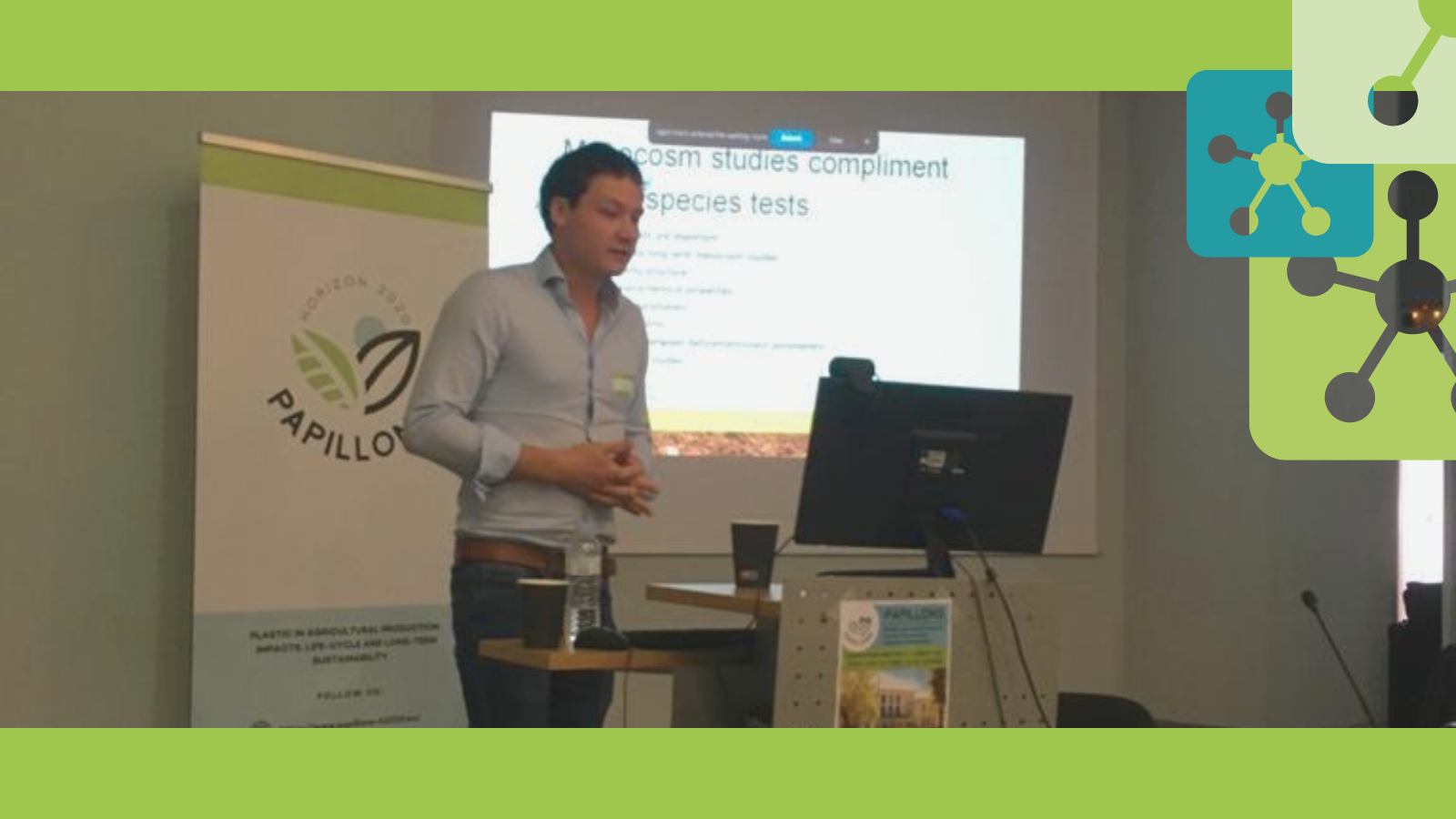
The CLIMECS experiments
Besides running large-scale field plot experiments in multiple parts of Europe, the PAPILLONS research project also performs mesocosm studies. These joint multifactorial mesocosms experiments are taking place at the Forschungszentrum Jülich research institution in Jülich, Germany, and at the Vrije Universiteit in Amsterdam, the Netherlands. Regarding the second experiment, its objective is to elucidate the processes and factors controlling the behavior and effects of microplastics on soil properties, soil biodiversity, and ecosystem service. It aims to shed light on the mechanisms behind the transport and behavior of microplastics in agricultural soil by amending reconstructed soil cores with selected reference materials in controlled environmental conditions. To do so, the research team at VU Amsterdam is performing mesocosm experiments in a system called CLIMECS, which stands for CLImatic Manipulation of ECosystem Samples.

The CLIMECS experiments
They prepare soil column simulating the agricultural field situation and add the agricultural micro and nanoplastics, which then can be exposed to all kinds of climatic scenarios for around 3 – 4 months after the initial design of the experiment. As part of PAPILLONS’ Cross-Cutting Theme 3, such experiments focus on the fate of the micro and nanoplastics in soil as well as their effects on soil physical/chemical properties, soil organisms and on crops.

Ph.D. candidate Sam van Loon is explaining the setup of the mesocosm experiments
A new batch of experiments is soon coming up, which shall provide further insight into the fate and possible more complex effects of MPs in soil.
To learn more about the CLIMECS mesocosm experiment please feel free to get in touch with us!